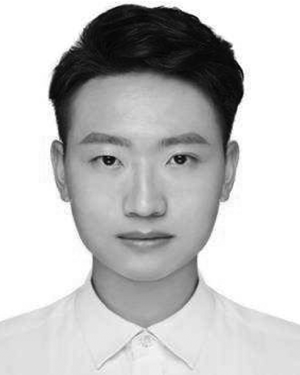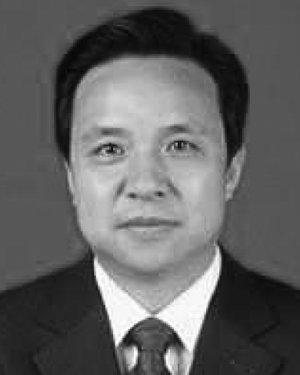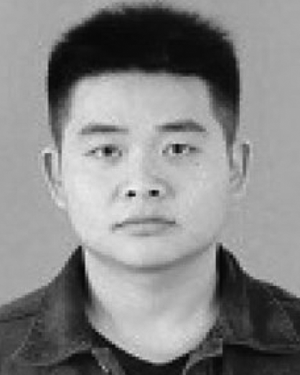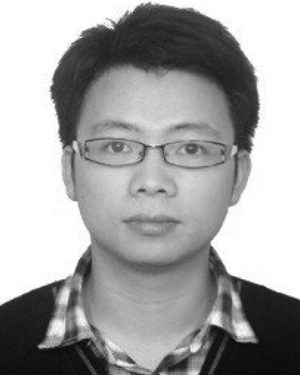Abstract:
Learners’ autonomous learning is at the heart of modern education, and the convenient network brings new opportunities for it. We notice that learners mainly use the comb...Show MoreMetadata
Abstract:
Learners’ autonomous learning is at the heart of modern education, and the convenient network brings new opportunities for it. We notice that learners mainly use the combination of online and offline learning methods to complete the entire autonomous learning process, but most of the existing models cannot effectively describe the complex process of knowledge diffusion under the multinetworks framework. By analyzing the relationship between online learning and offline learning in the autonomous learning, we develop a novel formal model to characterize the dynamic process of knowledge diffusion in the autonomous learning under multiple networks. To guide learners to learn independently and effectively expand the scope of knowledge through hybrid online learning, we then introduce the personalized needs of learners and the guidance of educators and further propose an effective algorithm (ERAA) to allocate educational resources. Through the experiments, we verify the effectiveness of the model and analyze the efficiency of the proposed algorithm. Then, we compare the proposed algorithm with the existing four algorithms and the results show that the proposed algorithm improves performance by 38%. This article provides highly realistic significance for education administrators to analyze the practice, develop autonomous learning strategy and put online educational resources.
Published in: IEEE Transactions on Learning Technologies ( Volume: 14, Issue: 4, 01 August 2021)
Funding Agency:

Key Laboratory of Modern Teaching Technology, Ministry of Education, Xi'an, China
School of Computer Science, Shaanxi Normal University, Xi'an, China
Pengfei Wan received the B.S. degree in mathematics and applied mathematics form the School of Mathematics and Information, Shaanxi Normal University, Xi'an, China, in 2016, where he is currently working toward the Ph.D. degree in computer science and technology with the School of Computer Science.
His research interests include information diffusion, social computing, nonlinear optimization, and algorithms.
Pengfei Wan received the B.S. degree in mathematics and applied mathematics form the School of Mathematics and Information, Shaanxi Normal University, Xi'an, China, in 2016, where he is currently working toward the Ph.D. degree in computer science and technology with the School of Computer Science.
His research interests include information diffusion, social computing, nonlinear optimization, and algorithms.View more

Key Laboratory of Modern Teaching Technology, Ministry of Education, Xi'an, China
School of Computer Science, Shaanxi Normal University, Xi'an, China
Xiaoming Wang received the Ph.D. degree in computer software and theory from Northwest University, Xi'an, China, in 2005.
He is currently a Professor with the School of Computer Science, Shannxi Normal University, Xi'an. From 2007 to 2008, he was a Visiting Scholar with the Department of Computer Science, Georgia State University, Atlanta, GA, USA. His main research interests include Internet of Things, social computing, a...Show More
Xiaoming Wang received the Ph.D. degree in computer software and theory from Northwest University, Xi'an, China, in 2005.
He is currently a Professor with the School of Computer Science, Shannxi Normal University, Xi'an. From 2007 to 2008, he was a Visiting Scholar with the Department of Computer Science, Georgia State University, Atlanta, GA, USA. His main research interests include Internet of Things, social computing, a...View more

Key Laboratory of Modern Teaching Technology, Ministry of Education, Xi'an, China
School of Computer Science, Shaanxi Normal University, Xi'an, China
Yaguang Lin received the Ph.D. degree in computer software and theory from Shaanxi Normal University, Xi'an, China, in 2020.
He is currently a Postdoctoral Researcher with the School of Computer Science, Shannxi Normal University. His main research interests include information diffusion, computational models of emotion contagion, mobile opportunistic networks, social computing, and ubiquitous computing.
Yaguang Lin received the Ph.D. degree in computer software and theory from Shaanxi Normal University, Xi'an, China, in 2020.
He is currently a Postdoctoral Researcher with the School of Computer Science, Shannxi Normal University. His main research interests include information diffusion, computational models of emotion contagion, mobile opportunistic networks, social computing, and ubiquitous computing.View more

Key Laboratory of Modern Teaching Technology, Ministry of Education, Xi'an, China
School of Computer Science, Shaanxi Normal University, Xi'an, China
Guangyao Pang received the Ph.D. degree in computer software and theory from Shaanxi Normal University, Xi'an, China, in 2021.
He is currently a Lecturer with the School of Electronic and Information Engineering, Wuzhou University, Wuzhou, China. His main research interests include deep learning, transfer learning, recommendation systems, and natural language processing.
Guangyao Pang received the Ph.D. degree in computer software and theory from Shaanxi Normal University, Xi'an, China, in 2021.
He is currently a Lecturer with the School of Electronic and Information Engineering, Wuzhou University, Wuzhou, China. His main research interests include deep learning, transfer learning, recommendation systems, and natural language processing.View more

Key Laboratory of Modern Teaching Technology, Ministry of Education, Xi'an, China
School of Computer Science, Shaanxi Normal University, Xi'an, China
Pengfei Wan received the B.S. degree in mathematics and applied mathematics form the School of Mathematics and Information, Shaanxi Normal University, Xi'an, China, in 2016, where he is currently working toward the Ph.D. degree in computer science and technology with the School of Computer Science.
His research interests include information diffusion, social computing, nonlinear optimization, and algorithms.
Pengfei Wan received the B.S. degree in mathematics and applied mathematics form the School of Mathematics and Information, Shaanxi Normal University, Xi'an, China, in 2016, where he is currently working toward the Ph.D. degree in computer science and technology with the School of Computer Science.
His research interests include information diffusion, social computing, nonlinear optimization, and algorithms.View more

Key Laboratory of Modern Teaching Technology, Ministry of Education, Xi'an, China
School of Computer Science, Shaanxi Normal University, Xi'an, China
Xiaoming Wang received the Ph.D. degree in computer software and theory from Northwest University, Xi'an, China, in 2005.
He is currently a Professor with the School of Computer Science, Shannxi Normal University, Xi'an. From 2007 to 2008, he was a Visiting Scholar with the Department of Computer Science, Georgia State University, Atlanta, GA, USA. His main research interests include Internet of Things, social computing, and Artificial Intelligence.
Xiaoming Wang received the Ph.D. degree in computer software and theory from Northwest University, Xi'an, China, in 2005.
He is currently a Professor with the School of Computer Science, Shannxi Normal University, Xi'an. From 2007 to 2008, he was a Visiting Scholar with the Department of Computer Science, Georgia State University, Atlanta, GA, USA. His main research interests include Internet of Things, social computing, and Artificial Intelligence.View more

Key Laboratory of Modern Teaching Technology, Ministry of Education, Xi'an, China
School of Computer Science, Shaanxi Normal University, Xi'an, China
Yaguang Lin received the Ph.D. degree in computer software and theory from Shaanxi Normal University, Xi'an, China, in 2020.
He is currently a Postdoctoral Researcher with the School of Computer Science, Shannxi Normal University. His main research interests include information diffusion, computational models of emotion contagion, mobile opportunistic networks, social computing, and ubiquitous computing.
Yaguang Lin received the Ph.D. degree in computer software and theory from Shaanxi Normal University, Xi'an, China, in 2020.
He is currently a Postdoctoral Researcher with the School of Computer Science, Shannxi Normal University. His main research interests include information diffusion, computational models of emotion contagion, mobile opportunistic networks, social computing, and ubiquitous computing.View more

Key Laboratory of Modern Teaching Technology, Ministry of Education, Xi'an, China
School of Computer Science, Shaanxi Normal University, Xi'an, China
Guangyao Pang received the Ph.D. degree in computer software and theory from Shaanxi Normal University, Xi'an, China, in 2021.
He is currently a Lecturer with the School of Electronic and Information Engineering, Wuzhou University, Wuzhou, China. His main research interests include deep learning, transfer learning, recommendation systems, and natural language processing.
Guangyao Pang received the Ph.D. degree in computer software and theory from Shaanxi Normal University, Xi'an, China, in 2021.
He is currently a Lecturer with the School of Electronic and Information Engineering, Wuzhou University, Wuzhou, China. His main research interests include deep learning, transfer learning, recommendation systems, and natural language processing.View more


